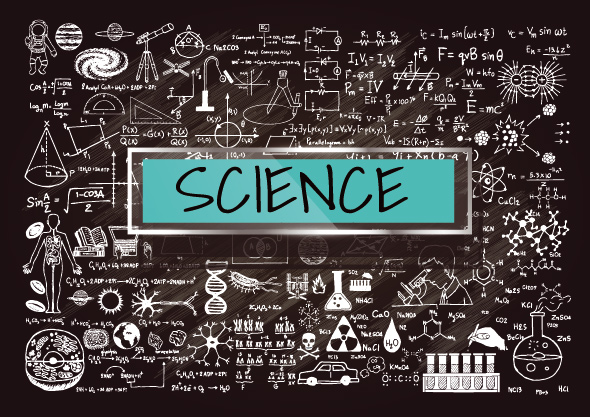Talk Nerdy: Anti-Science, Trump, and Why I Hope Science Will Help Save the World
Funny how things work out.
I had already drafted an article about an interview I did over the weekend with my friend Cara Santa Maria for her Talk Nerdy podcast. We spent a lot of time talking about critical thinking, science, and Donald Trump.
And then, as I was editing that article, a whole passel of revelations came out about Trump. By now you’ve probably heard about the intelligence reports reporting ties between Russia and Trump's campaign to manipulate the presidential election.
Almost lost in all the noise over that was that Trump had a meeting with Robert F. Kennedy Jr., purportedly asking him to be on a panel on the safety of vaccines. I have written about RFK Jr.’s crackpot anti-vaccine stance many times (see, in order, this article, then the follow-up, and then a third one). His views are wrong, anti-scientific, and downright dangerous.
All of which makes this interview all that much more timely and, if I may say so, important. Please give it a listen.
Cara had me on her podcast back in 2015, and asked me to be on again because she happened to see my name in the credits of the movie Arrival, and wanted to know what my involvement was (spoiler: I made some minor comments on the script before it was finalized). The first half of the podcast is about that as well as the influence of science in movies and TV.
But then we spent quite a bit of time talking about Trump and his predilection for anti-science. As an easy example, his incoming Vice President Mike Pence and Cabinet picks Rick Perry and Ben Carson are all young-Earth creationists. Trump’s nominees are all basically the worst people a rational person would pick for those positions.
And while you might argue that someone being a creationist doesn’t disqualify them from being secretary of energy, for example, it does show Trump’s egregious propensity to actively seek out people who deny science for positions of power. The meeting with RFK Jr. just confirms that.
So. The big question is, is there hope?
Yes, I think there is. And it may come from an unlikely direction.
Cara ends every podcast asking her guest two questions: What is your biggest fear for the future, and what is your biggest hope?
My answer this time was similar to the last time I was on her show: climate change and science, respectively. But I generalized it a bit this time.
Certainly climate change on its own is terrifying; I’ve written many times how it’s the single greatest threat we as a species face right now, and how denying it is a threat to our national security. But it’s more than that. The denial of human-induced climate change is just one symptom of the much larger suppression and active antagonism toward science, especially with the incoming Trump administration.
Yet I still have hope. Why? Because there are tens of millions, hundreds of millions, of Americans who are still reality-based. The majority of us understand that climate change is human-caused and a real threat. That means science can still prevail over politics and personal ideology.
In his farewell speech Tuesday night, President Obama said this:
Politics is a battle of ideas; in the course of a healthy debate, we’ll prioritize different goals, and the different means of reaching them. But without some common baseline of facts; without a willingness to admit new information, and concede that your opponent is making a fair point, and that science and reason matter, we’ll keep talking past each other, making common ground and compromise impossible.
Science is a critical piece of that common ground. We need people to be more comfortable with science, which means exposing more of them to it. Even more importantly they need to understand scientific thinking: being critical of sources, data, and conclusions; questioning the process all along the way; and looking for personal biases that might lead to incorrect conclusions.
And that’s why I answered Cara’s last question the way I did. One way to get people to see science is to get it into all aspects of modern culture. Two of the biggest influences on society are TV and movies, and that’s why I’m so happy to see science and scientists being portrayed better in those media. It may seem fatuous, but I contend that it’s an excellent place to start. Like it or not, people, especially younger ones, consume a lot of entertainment. If we show them stories where scientists are just like them, where science is important, where it’s fun, where it can help, where it can save us all, then we still have a chance here.
We have a long, long way to go, and the next two to four years will be trying indeed. But we can do this. Make your voice heard, and make it a voice for science. As long as there are people who would tear down the fabric of reality, there will be those of us who will give their all to defend it.


